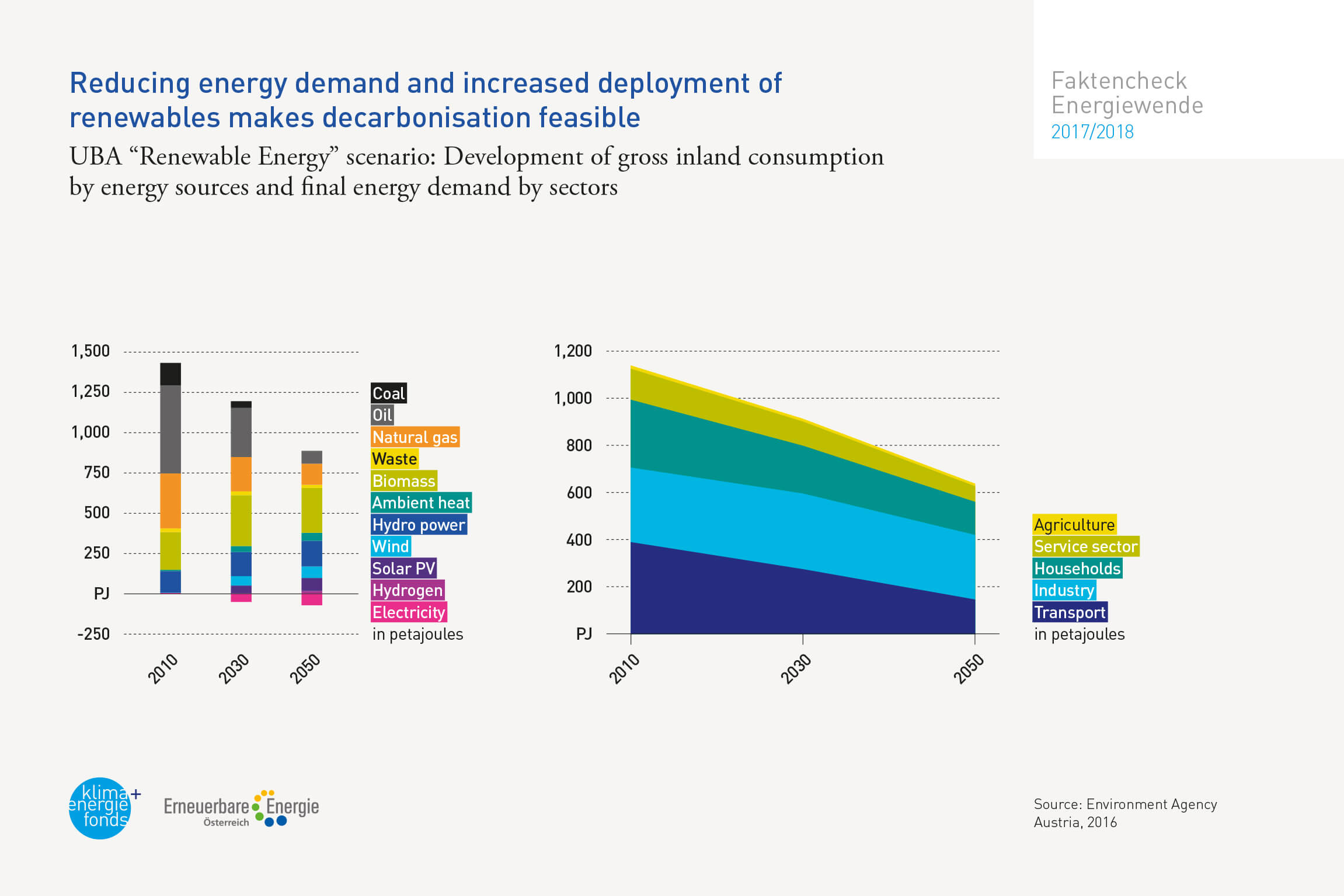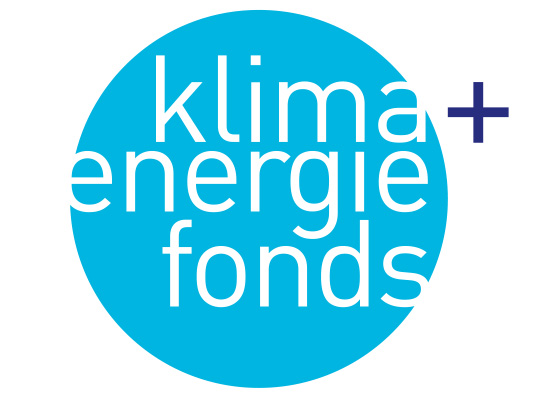The decarbonisation of energy systems is feasible
Myth
Decarbonising the energy system remains an illusion. It is utterly impossible to achieve anything close to greenhouse gas neutrality until the middle of the century.
Facts
Current research shows that far-reaching decarbonisation poses a considerable challenge, but it is feasible and offers new economic opportunities. Many technological developments evolve faster than assumed.
Many studies show that it is technologically and economically feasible to create an energy system based on 100% renewable energies. Technological and economic prerequities are available to lower greenhouse gas emissions in line with the Paris Climate Agreement. A key condition is the increased deployment of renewable energy generation, consequent implementation of energy efficiency measures and establishing smart grids and flexible structures.
According to the “Renewable Energy” scenario published by the Austrian Environment Agency (UBA 2016), the greenhouse gas emissions by fossil fuels can be reduced by around 60% by 2030, or around 90% by 2050, compared to 2005 levels. Compared to 2010, a 20% reduction in end energy use can be achieved by 2030; the share of renewable energy will increase by 61% until 2030 and by 91% until 2050. At the same time the scenario includes 100% renewable electricity supply (on balance) and a renewable district heating share of 78%.
The electricity sector, which is characterised globally by the enormous technological development of renewables and storage, plays a specific role in decarbonisation. Due to the integration and coupling of the electricity, heat and mobility sectors, overall electricity demand will increase; however the phase-out of fossil energy use is entirely feasible.





